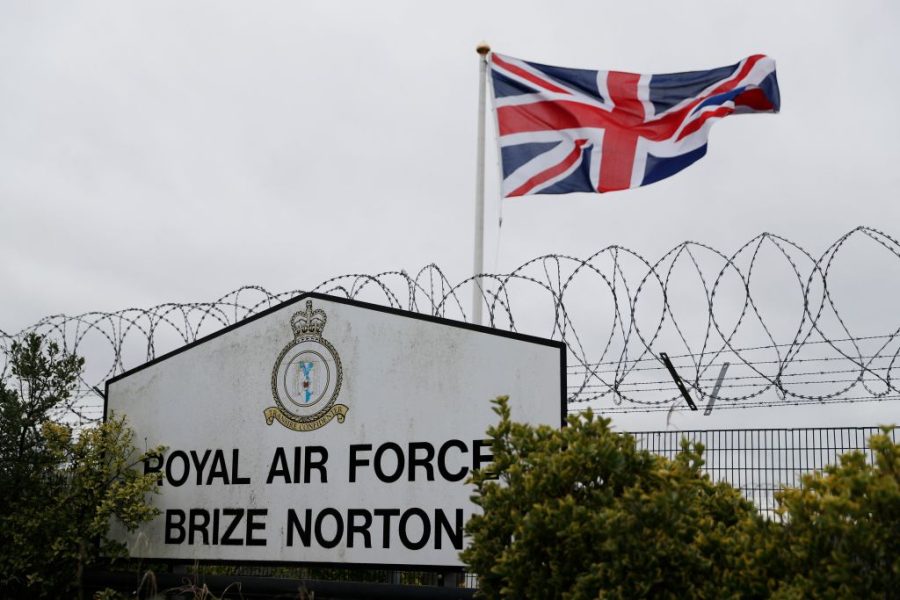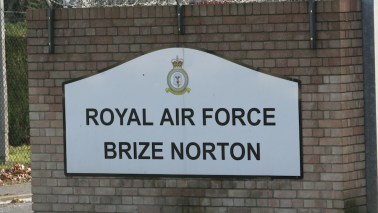It might be a little unfair to pick on Lisa Nandy – who was bounced on Radio 4’s Today programme yesterday morning and who, to be fair, did condemn unequivocally the actions of the Palestine Action cadres who attacked two of the 14 Voyager aircraft that form the Royal Air Force’s strategic tanker force. But her extemporised response betrayed annoyance at ‘choices’ over a protest before, correctly, reminding the audience that this was about national security.
And it certainly is. These aircraft are vital to our national defence. They refuel the air-defence fighters that patrol the thousands of square miles of the airspace over the North Atlantic that is our Nato responsibility, intercepting nuclear-capable Russian bombers on a regular basis. They allow us to deploy aircraft quickly at range – such as to reinforce Cyprus only this week. The defence of the Falklands hinges on it. At the other end of the scale, they will deploy forces to conduct disaster relief at global range – did the ‘protesters’ want to disable this?
The RAF must ask itself whether it has slipped into too much of a peacetime mode
So, damaging and disabling such key assets of the national defence architecture is not a ‘protest’; it is an act of sabotage likely to assist our enemies. And it should be treated as such.
Many immediate thoughts flow from the incident. Most people are unaware of how hard it is to secure and defend a large area such as Brize Norton (BZN), which consists of 1200 acres and has an approximately 6 mile perimeter. What might seem like a serious perimeter fence to most of us is no obstacle to the determined – in military parlance, an obstacle is only such if it is under constant surveillance, and fire support can then be brought down on anyone trying to cross it. This does not apply at BZN, nor any major military facility in the UK. So what does?
Any station commander worth their salt knows that anything of value on the base has to become a local citadel. When the RAF had nuclear weapons, the bomb-dump was such a citadel – multiple layers of barbed wire, constant surveillance, armed guards, a heavily armed, quick response force. It was accepted that the airfield boundary fence was little more than a ‘Keep Out’ sign and played little part in the security plan. What did contribute over time was a good relationship with the local population, who will spot anything untoward before anyone.
It will be interesting to see, therefore, what the risk assessment was for BZN, and the plan for how highly valuable, operationally vital assets were to be guarded. Because this is not new. In recent decades, anti-war in Yemen protesters broke into BAE Systems Warton and anti-drone protesters into RAF Waddington with varying degrees of intent. And that was at a time when the general backdrop of protest was not as it is today. In the last couple of years we have seen defence companies attacked by Palestine Action, resulting in millions of pounds worth of damage and operational delays.
The perpetrators of those incidents, by and large, were given light sentences and even acquitted on grounds of doing a ‘greater good’. What message did that send? The media continued to refer to the perpetrators as ‘protesters’, not saboteurs, and they were treated sympathetically. This sets societal norms, and so such ‘protests’ can become quasi-legitimised as acts of principled opposition. Worthy of a slapped wrist, perhaps, but…
As Sir Stephen Watson succinctly explained at Policy Exchange recently, there has only been one Just Stop Oil protest in Manchester, and it lasted just 45 seconds before they were arrested for blocking the King’s highway. Set boundaries and you get less bad behaviour, get less bad behaviour and you can control what remains.
And so it must be with Palestine Action. Their act of sabotage needs to be recognised for what it is and treated accordingly as the action of a de facto fifth column acting as ‘useful idiots’. In this light the MOD’s reference to ‘vandalism’ in its much later press release seems inadequate. ‘Vandalism’ is what happens to the bus stop outside the Navy, Army and Air Force institutes.
Only recently, that sympathetic default to well-meaning ‘protest’ has started to harden in the courts. It needs to stiffen up more. The times we are living in do not give us the luxury we enjoyed in the 1990s, in that brief holiday from history when threats appeared to have gone for good and our Armed Forces could be seen as normative vehicles. The threats are back, as the heads of our intelligence services are reminding us with increasing urgency.
The RAF must ask itself whether it has slipped into too much of a peacetime mode, assuming it will be essentially safe ‘at home’. A more operational mindset across the Service would not go amiss.
And we might ask what else is possible in the light of Ukraine and Israel launching operationally brilliant drone attacks from the enemy’s own territory and within sight of strategic targets? How confident can we in the UK be that our enemies won’t be able to conduct such operations here? In a nation-state where actual hostile action has now emanated from a climate where aggressive hostile intent has long been signalled – but, perhaps, has become so common and tolerated that we have become inured to it.







Comments